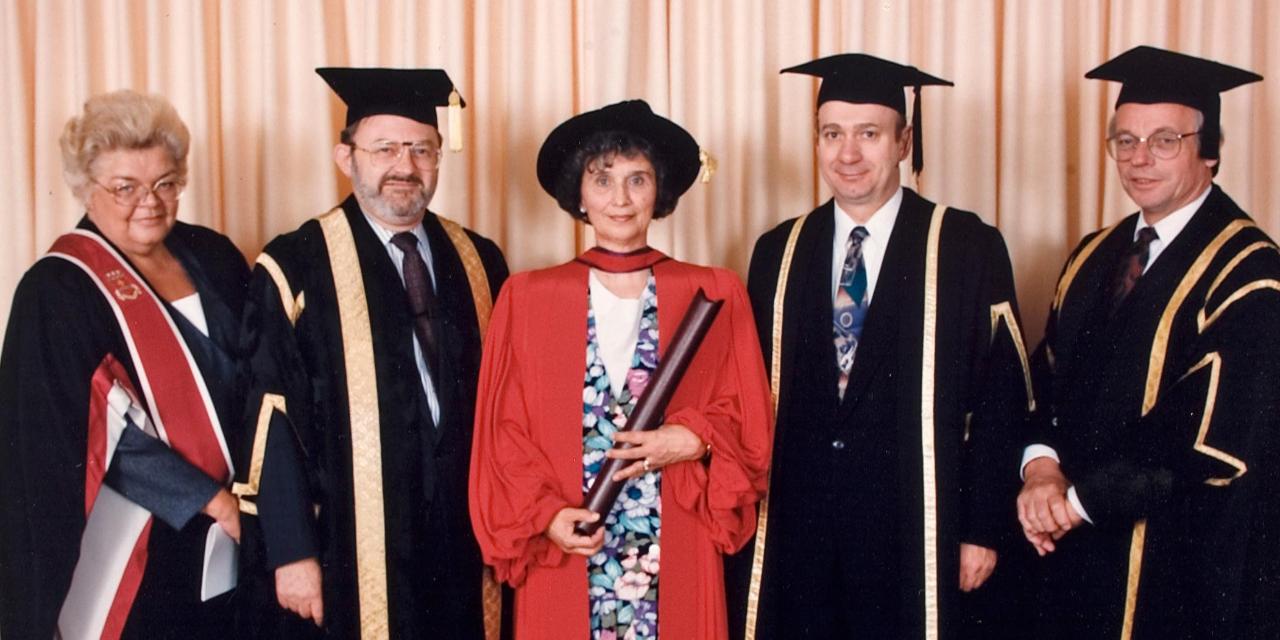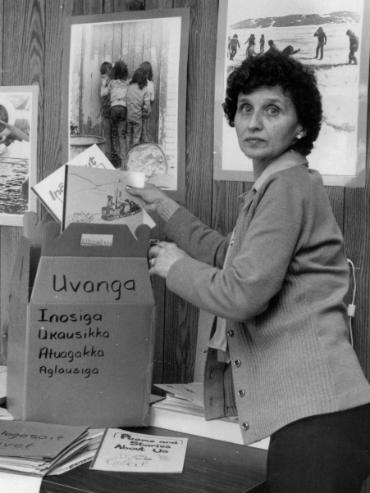Speaking to be heard
Today, the Labrador Campus of Memorial University in Happy Valley-Goose Bay is a shining example of what communities can accomplish when they work together.
Situated in the homelands of the Innu and Inuit, the campus works in partnership on Indigenous-driven research and education.
But this era of educational collaboration is relatively new.
When Newfoundland joined Canada in 1949, it became obligatory for educational instruction to occur in one of the country’s two official languages. Indigenous people were not consulted, and the change came into effect practically overnight.
English became the language of instruction across the province, and in the ensuing years, fewer and fewer people learned Indigenous languages.
Teachers in Labrador’s new provincial school system were not from the region. They didn’t speak the languages and often did not understand the Indigenous cultures of the North.
Due to the lack of teachers and the high turnover rates in the positions that could be filled, the Moravian Mission in Labrador decided to try something different. They offered to support individuals from the region who were willing to train at universities in the south and return to teach at home.
Dr. Beatrice Watts took this opportunity. She trained at Memorial University in St. John’s, earned her degree in 1951 and returned to become the first Labrador Inuit school teacher.
It was a homecoming that would ripple through generations.
Dr. Watts began teaching in Nain, her hometown, the year she graduated. Although English was the language of instruction, she developed informal and practical ways to teach Inuttitut to the students in her classrooms.
Over time, her work to revive the language inspired others. In 1970, the Labrador Integrated School Board hired Dr. Watts to develop an Inuttitut language program and to create a course on traditional Inuit skills.
In 1974, the school board entrusted her to increase Indigenous languages and Labrador materials in the classroom, and to encourage the training of Indigenous teachers.

Beatrice Watts received an honorary degree from Memorial in 1992: (l-r) Janet Gardiner, Art May, Beatrice Watts, Chris Decker and Jaap Tuinman. Photo from Memorial University Archives.
Dr. Watts joined forces with her alma mater in 1975 when she worked with Memorial to create the Teacher Education Program in Labrador. The program began accepting students in 1978, and Dr. Watts taught and co-taught courses in Inuttitut.
That same year, she joined the advisory committee for Memorial’s Labrador Institute for Northern Studies, which has since evolved to become the Labrador Campus.
But Dr. Watts’ voice was heard far beyond her classrooms through her advocacy work and commitment to public service.
When she recognized the language barriers that Indigenous people faced within the judicial system, she became chair of the Board of Labrador Legal Services in 1982.
Dr. Watts served with the provincial Human Rights Commission, the Royal Commission on Labrador and the Provincial Association on Multiculturalism.
A strong advocate for women’s rights, she worked with the Canadian Advisory Council on the Status of Women and as president of the Labrador Native Women’s Association.
She also became Newfoundland and Labrador’s first female mayor when she won the election in North West River in 1983.
When Memorial conferred an honorary degree upon Dr. Watts in 1992, her convocation address challenged those in attendance to continue to learn about their province.
“I find it disturbing,” she said, “that people in this province appear to know very little — or care — about the five aboriginal groups and their concerns.”
The address expresses shades of frustration, disbelief, cultural pride and defiance. It demands that Indigenous voices be heard.
Though Dr. Watts may most be remembered as an educator who taught Inuit students to speak their language, the partnerships that now flourish at the Labrador Campus owe a great debt to her resolve and persistence in asking others to listen.
